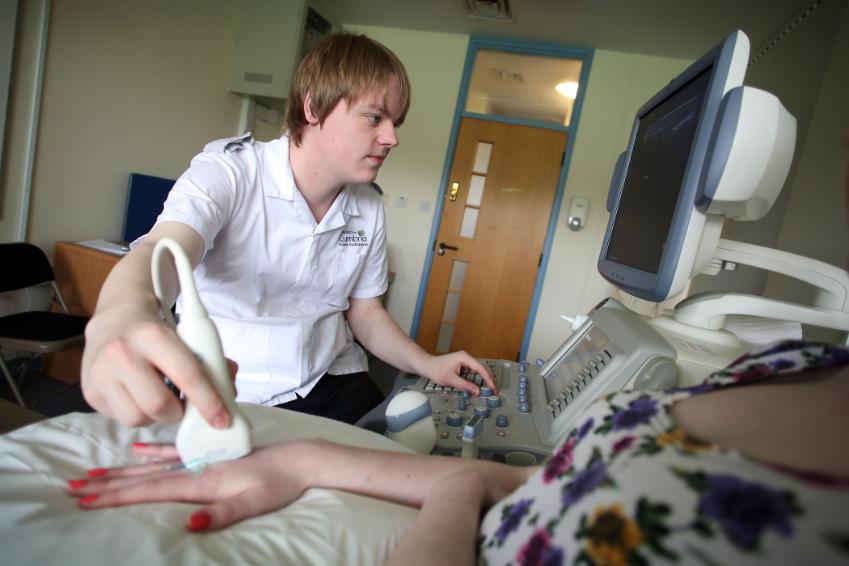MSc - Medical Imaging (Ultrasound)
Applications for the January 2025 intake for this programme are now closed. We will begin accepting applications from February 2025 for the January 2026 intake’
With a UK-wide shortage of sonographers, there has never been a better time to study a Master's in Medical Imaging: Ultrasound.
Our intensive two-year MSc Ultrasound programme – accredited by the Consortium for the Accreditation of Sonographic Education (CASE) – is the perfect accelerated pathway of study to launch your career as a sonographer.
Course Overview
On this two-year programme, you will learn all of the academic knowledge required to work in the field of sonography. Throughout, you will receive comprehensive hands-on training in our skills hub, which is equipped with the latest imaging workstations and houses one of the largest MedaPhor ultrasound simulation labs in the world.
This programme gives you exposure to the full range of sonography in clinical areas such as obstetrics, gynaecology, general medical (abdominal and small parts), vascular, breast and musculoskeletal ultrasound training. Approximately 75% of your studies will be practical, so you will develop the work-based skills required to step into employment after graduation. The module delivery will be an online ‘blended’ learning approach and most modules will have an element of live virtual tutorial sessions.
On this course you will...
- Learn the academic knowledge and the clinical skills required to work in the field of medical ultrasound. This will ensure you become a confident and competent ultrasound practitioner.
- Working with a placement hospital, you will gain exposure to the full range of sonography specialisms, such as obstetrics, gynaecology, general medical (abdominal and small parts) and vascular.
- Be welcomed from a range of healthcare and non-healthcare backgrounds. A healthcare background or degree is not required to gain a place on this programme.
- Engage in practical training to gain work-based skills. You will have access to our cutting-edge ultrasound training hub, equipped with the latest ultrasound machines and an extensive ultrasound simulation facility.
Location
Lancaster Campus
Lancaster is the Red Rose heartland, a student haven full of history and culture. With iconic stone architecture, parkland, and a caring community, this is the place to get involved. The campus houses top-quality facilities tailored to the needs of life-savers, world changers, and future leaders.
Find out more
Find out more about studying with us
Attend an Open Day at Cumbria
An Open Day is your opportunity to explore one of 5 campuses, meet your lecturers, and find out how the University of Cumbria could become your new home.


-199x64.png)

.webp)


